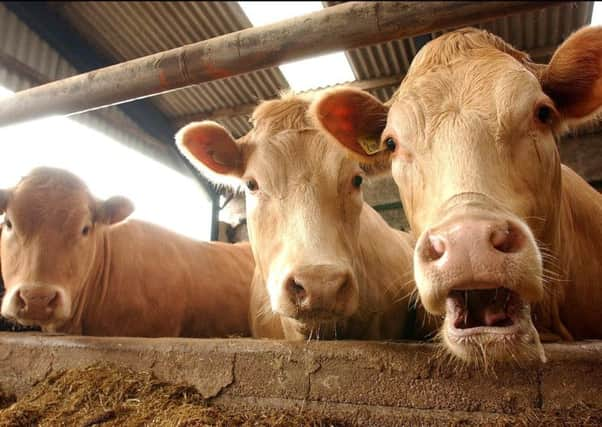‘Growing market for Scottish livestock’ claim


But just as it takes time to ratchet up home production in the beef sector, so, he warned, it takes time before political deals turn into physical trade
The main driver behind the steady growth in global demand for red meat has been the growing population coupled with some economic recovery.
Advertisement
Hide AdAdvertisement
Hide Ad“The Food and Agriculture Organisation has stated that global demand for meat will increase by more than 10 per cent by 2022 but most of that growth will be in developing countries,” said Ashworth. “The consequence of that is that global trade will increase.”
That is why there have been several announcements over the past few weeks regarding future developments involving European Union or UK trade partners.
Examples of the deals include the agreement in principle between the EU and Canada, the US announcement of a relaxing of rules on beef imports, the start of trade talks between the EU and the USA and a UK announcement of a trade deal with Singapore. “All these announcements hold out the potential of exciting opportunities for exporters and producers,” added Ashworth. “However, of all these announcements the most advanced relates to Singapore where several UK plants have been approved by the Singaporean authorities to trade beef with them.”
In contrast even if agreement in principle is reached between the EU and the US, the expectation is that it may take some four years before physical trade takes place, he added because of the time taken to convert a political agreement into a workable protocol such as requiring meat plants to gain the necessary approvals that have still to be detailed.
“The argument works equally well in reverse,” said Ashworth “The best example is probably Brazilian beef, which is not excluded from the EU or UK market but effectively the Brazilians choose not to trade with us because the individual abattoir and animal protocols and tariff rates are considered to be too onerous, time consuming or expensive to make it worthwhile.”